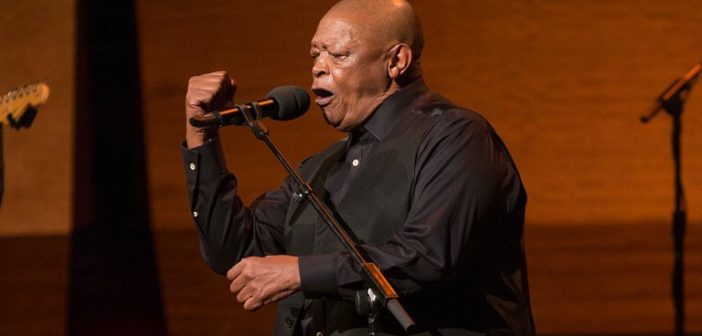South African jazz artiste, anti-apartheid activist, trumpeter and singer,Hugh Masekela has died at 78 on Tuesday in Johannesburg.
His death was confirmed by Dreamcatcher, a communications agency that represented him.
Mr. Masekela came to the forefront of his country’s music scene in the 1950s, when he became a pioneer of South African jazz as a member of the Jazz Epistles, a bebop sextet that included the pianist Abdullah Ibrahim and other future stars.
After a move to the United States in 1960, he won international acclaim and carried the mantle of his country’s freedom struggle. His biggest hit was “Grazing in the Grass,” a peppy instrumental from 1968 with a twirling trumpet hook and a jangly cowbell rhythm.
In the 1980s, as the struggle against apartheid hit a fever pitch, he worked often with fellow expatriate musicians, and with others from different African nations. On songs like “Stimela (Coal Train),” “Mace and Grenades” and the anthem “Mandela (Bring Him Back Home),” he played spiraling, plump-toned trumpet lines and sang of fortitude and resisting oppression in a gravelly tenor, landing somewhere between a storyteller’s incantation and a folk singer’s croon.
In the 1970s and ’80s, he collaborated with musicians across sub-Saharan Africa, constantly expanding his style to accommodate a range of traditions. , he played with Paul Simon and Ladysmith Black Mambazo on the “Graceland” tour, which was not allowed in his homeland, South Africa.
Masekela was born in Witbank. He was given his first trumpet by the anti-apartheid activist archbishop Trevor Huddleston. He had close friendships with jazz legends such as Miles Davis, John Coltrane and Charles Mingus, Masekela also performed alongside stars Janis Joplin, Otis Redding and Jimi Hendrix in the 1960s.
He was married to singer and activist Miriam Makeba, known as “Mama Africa”, from 1964 to 1966. He performed at the opening ceremony of the 2010 World Cup in Johannesburg. His career spanned over 5 decades.
South African president, Jacob Zuma, said the nation would mourn a man who “kept the torch of freedom alive”.




